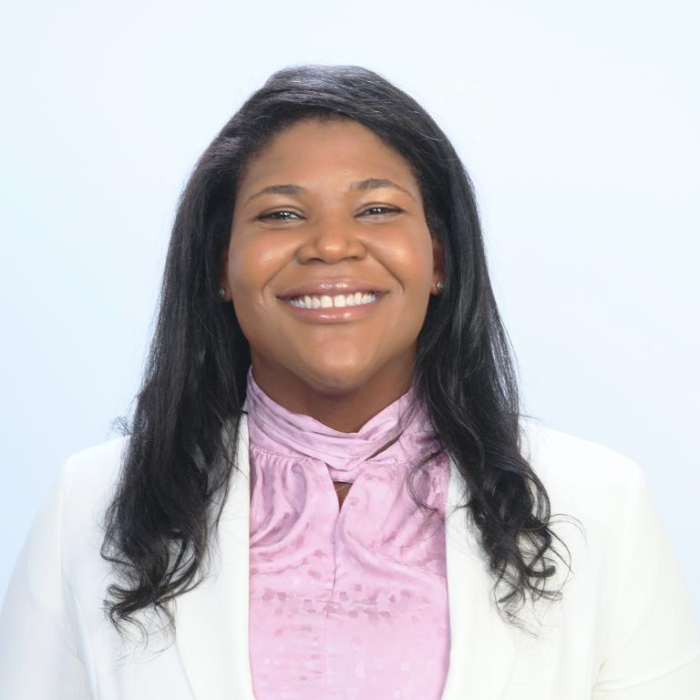
Chandra Jennings, DO, MPH
Medical Director, Family Medicine Physician, Camillus Health Concern, Miami, FL
Sep 15, 2023
Modern healthcare is a turbulent landscape. It is easy to forget the "why" that brought us to medicine when faced with a system that frustrates physicians and forgets to care for patients. If we take a moment to remember that medicine is a mission, not just an occupation, then discovering our "why" is simple. Start by picturing that crucial moment, and the mission will present itself. This is a moment that reaffirmed the mission.
At the periphery of the Miami Medical District lives the Invisible Visible Woman. She has made a home on a bus bench before a medical practice, yet receives no care. Her condition is poor and has deteriorated to a miserable state.
The community knows her but does not stop to engage with her; it just moves around her like any other obstacle on the sidewalk.
She is seen and avoided. Ignored and shunned. She is visibly unwell and handled with deliberate indifference. She is alone, vulnerable, and seemingly abandoned. However, she is not helpless because she has our street medicine team.
Upon meeting J.D. (name withheld for privacy), it was obvious that she was unwell. She appeared older than her stated age and in a poor state of physical and social well-being. Her skin and hair were riddled with missing patches, furrows dug deep into her skin to stop an unrelenting itch beyond her control, and visible pests on her person kept her isolated to the city bus bench she'd been forced to call home.
Her physical condition exacerbated her psychiatric illness and kept her locked in a perpetual cycle of isolation: mentally directed inward without the capacity to ask for help; physically isolated by perceptions of her health, social, and mental status; and socially vulnerable as an unsheltered person far from her home of origin.
The cycle of despair has changed through the diligence of the street medicine team, in-clinic clinicians, and collaborating students. Gradual trust was obtained through frequent non-invasive interactions, allowing J.D. to set goals for her needs. She consented to treatment with the fluidity of a tango: steps forward on some days, then steps back in the times that followed. Through patience and empathy, J.D. cemented trust in the care and intentions of the team and allowed full treatment of her conditions. She accepted medication and was able to self-administer treatment as directed. She received toiletries, clothing, and food when offered. The most crucial demonstration of her trust was when she allowed the team to dress her wounds from her place of comfort on the bus bench. Upon her request for clothing, the team shielded and maintained her privacy and dignity as she used fresh clothing.
J.D. imparted thanks to the team for their diligent and gentle care. J.D. and the community surrounding her have witnessed an improvement in her physical condition. Our colleagues in transit and law enforcement who frequently encounter J.D. have experienced her transition in health status. The magnitude of the mutual exchanges of gratitude radiates from J.D. through the surrounding community that now sees her and treats her with the same care as our street medicine team. Our gratitude is demonstrated by continuing to care for J.D. as she allows, championing each success on the path to wellness, and persevering to embody the mission of total health for the past, present, and future residents of Miami-Dade County.
When J.D. is now encountered, she is truly seen.
At the periphery of the Miami Medical District lives the Invisible Visible Woman. She has made a home on a bus bench before a medical practice, yet receives no care. Her condition is poor and has deteriorated to a miserable state.
The community knows her but does not stop to engage with her; it just moves around her like any other obstacle on the sidewalk.
She is seen and avoided. Ignored and shunned. She is visibly unwell and handled with deliberate indifference. She is alone, vulnerable, and seemingly abandoned. However, she is not helpless because she has our street medicine team.
Upon meeting J.D. (name withheld for privacy), it was obvious that she was unwell. She appeared older than her stated age and in a poor state of physical and social well-being. Her skin and hair were riddled with missing patches, furrows dug deep into her skin to stop an unrelenting itch beyond her control, and visible pests on her person kept her isolated to the city bus bench she'd been forced to call home.
Her physical condition exacerbated her psychiatric illness and kept her locked in a perpetual cycle of isolation: mentally directed inward without the capacity to ask for help; physically isolated by perceptions of her health, social, and mental status; and socially vulnerable as an unsheltered person far from her home of origin.
The cycle of despair has changed through the diligence of the street medicine team, in-clinic clinicians, and collaborating students. Gradual trust was obtained through frequent non-invasive interactions, allowing J.D. to set goals for her needs. She consented to treatment with the fluidity of a tango: steps forward on some days, then steps back in the times that followed. Through patience and empathy, J.D. cemented trust in the care and intentions of the team and allowed full treatment of her conditions. She accepted medication and was able to self-administer treatment as directed. She received toiletries, clothing, and food when offered. The most crucial demonstration of her trust was when she allowed the team to dress her wounds from her place of comfort on the bus bench. Upon her request for clothing, the team shielded and maintained her privacy and dignity as she used fresh clothing.
J.D. imparted thanks to the team for their diligent and gentle care. J.D. and the community surrounding her have witnessed an improvement in her physical condition. Our colleagues in transit and law enforcement who frequently encounter J.D. have experienced her transition in health status. The magnitude of the mutual exchanges of gratitude radiates from J.D. through the surrounding community that now sees her and treats her with the same care as our street medicine team. Our gratitude is demonstrated by continuing to care for J.D. as she allows, championing each success on the path to wellness, and persevering to embody the mission of total health for the past, present, and future residents of Miami-Dade County.
When J.D. is now encountered, she is truly seen.





Leave a commentOrder by
Newest on top Oldest on top